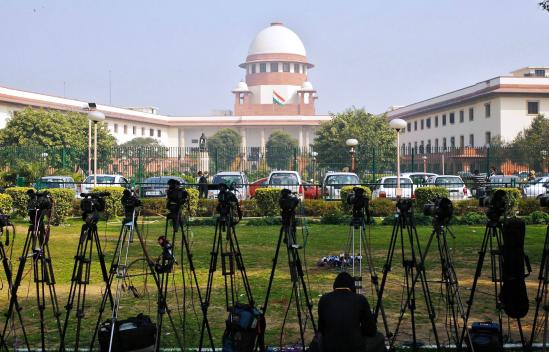Sakunjay Vyas
Published on: March 16, 2022 at 08:25 IST
The Two Judge Bench of Justice Sanjay Kishan Kaul and Justice M.M. Sundresh of Supreme Court overturned the High Court of Kerala bench order that held that the recovery under Rule 3 could only be against pension and not DCRG, and Rule 3A insofar as it permitted DCRG to be withheld was struck down.
The Supreme Court recently ruled that Death-Cum-Retirement-Gratuity may not be released to the parties with a pending criminal appeal.
The Two Judge Bench of Justice Sanjay Kishan Kaul and Justice M.M. Sundresh was hearing an appeal against the High Court of Kerala Bench order that held that the recovery under Rule 3 could only be against pension and not DCRG, and Rule 3A insofar as it permitted DCRG to be withheld be struck down.
The present matter was related to the effects on the pension or Death-Cum-Retirement-Gratuity (DCRG) in relation to the criminal proceeding against a government employee.
The Apex Court disagreed with the decision of the High Court that the High Court, while deciding the matter in hand, has introduced new legislation by undertaking the exercise of reading down, which was not necessary since the law in itself is unambiguous.
The Apex Court tried to clarify the applicability and interpretation of the rules and notes provided for DCRG. It stated the very objectives of holding back pension or the DCRG. One can be for the recovery of the amounts found due from the delinquent employee after appropriate proceedings. The second eventuality is if an employee is dismissed from service.
We are aware of the fact that mere acquittal in a criminal proceeding wouldn’t bind the state to take any action in departmental proceedings. That the choice is with the state as to hold separate proceedings or follow the judgment of the Criminal Court.
That Note 2 in the present case has clearly stipulated that the word pension would not include DCRG. However, Note 2 also provides after giving a reasonable opportunity to the employee or assistance; the department can recover the liabilities present against the employer without the departmental/judicial proceedings.
Rule 3 and 3A also deal with DCRG, and 3A has the provision of provisional pension which be given, which may not be more than actual pension. Further, it is stated the High Court has read Rule 3A separately, which is not appropriate and that since Rule 3, Note 2, Ruling 3, and Rule 3A all deal with DCRG, they should be read together.
The Apex Court further stated that in the case of pendency of the appeal in relation to DCRG during till the proceeding continues, some arrangement has to be made so that the parties involved may not get prejudiced. And that no future separate proceedings be constituted by the state and that they may pass appropriate orders based solely on the result of the criminal proceeding.
“then the pendency of the appeal cannot disentitle the State from withholding the DCRG, considering that it is a hiatus period within which certain arrangements have to be made which would be dependent on the outcome of the appeal.”
the Court said.
As a result, the Apex Court quashed and set aside the order of the High Court of Kerala bench order that held that the recovery under Rule 3 could only be against pension and not DCRG, and Rule 3A insofar as it permitted DCRG to be withheld was struck down, by stating that the impugned judgment of the Full Bench of the Kerala High Court cannot be sustained, and it cannot be opined that the DCRG would have to be released to the respondents pending consideration of the criminal appeal.

